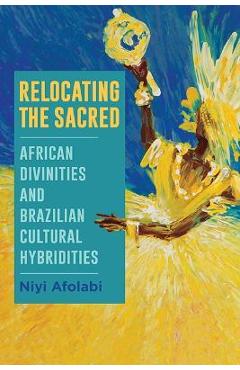
Although Brazil is home to the largest African diaspora, the religions of its African descendants have often been syncretized and submerged, first under the force of colonialism and enslavement and later under the spurious banner of a harmonious national Brazilian character.
This book maps the role of African heritage in--and relocation of the sacred to--three sites of Brazilian Cultural production: ritual altars, literature, and carnival culture..
By embracing African deities as a source of creative inspiration and resistance, Afro-Brazilians have appropriated syncretism as a means of not only popularizing African culture but also decolonizing themselves from the past shame of slavery.
Following the re-Africanization process and black consciousness movement of the 1970s to 1990s, Afro-Brazilians have questioned racial democracy, seeing how its claim to harmony actually dispossesses them of political power.
Relocating the Sacred argues that these religions nevertheless have been preserved and manifested in a strategic corpus of shifting masks and masquerades of Afro-Brazilian identity.
Although Brazil is home to the largest African diaspora, the religions of its African descendants have often been syncretized and submerged, first under the force of colonialism and enslavement and later under the spurious banner of a harmonious national Brazilian character
